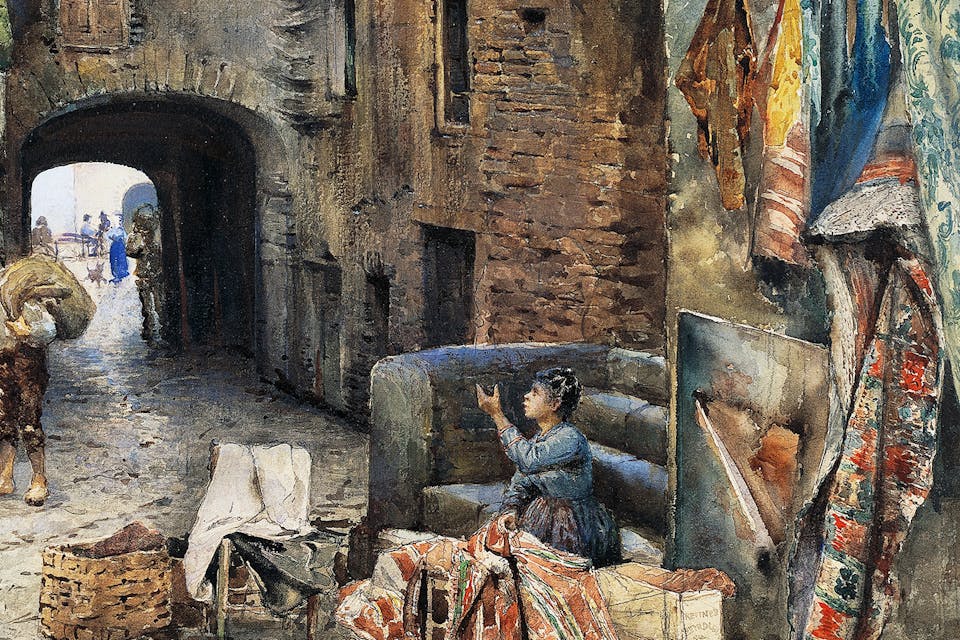
January 8, 2020
The Controversy Over the Origins of the Word “Ghetto”
By PhilologosFor a word that is, in terms of its linguistic history, a relatively recent one, ghetto’s origins have been an unusual source of contention and uncertainty.
Got a question for Philologos? Ask him directly at philologos@mosaicmagazine.com.
In his newly published Ghetto: The History of a Word, Daniel B. Schwartz, a professor of history at George Washington University, starts his chronicle with the word’s origins as a term for the small island on the northern edge of Venice to which Jewish residence was confined by a municipal edict in 1516. He then traces its evolution, first, to refer to other, similar Jewish enclosures in Italian cities; next, to denote all heavily or exclusively Jewish neighborhoods, whether imposed by law, custom, or Jewish preference, anywhere in the world; then to designate the sealed quarters into which Jews were herded by the Nazis before their deportation to the death camps during World War II; then to signify any urban area lived in by an underprivileged ethnic group, as when one speaks of black ghettos in the United States; and, finally, to describe a narrowly circumscribed collective mindset, a “mental ghetto” inhabited by this or that population.
Ghetto is an interesting and informative study of a word’s travels through centuries of historical, political, and sociological developments that kept affecting and changing its meaning. But let’s put these centuries aside and go back to Venice and Italy in the 1500s. Where did the Italian word ghetto come from, and why was it used as it was?